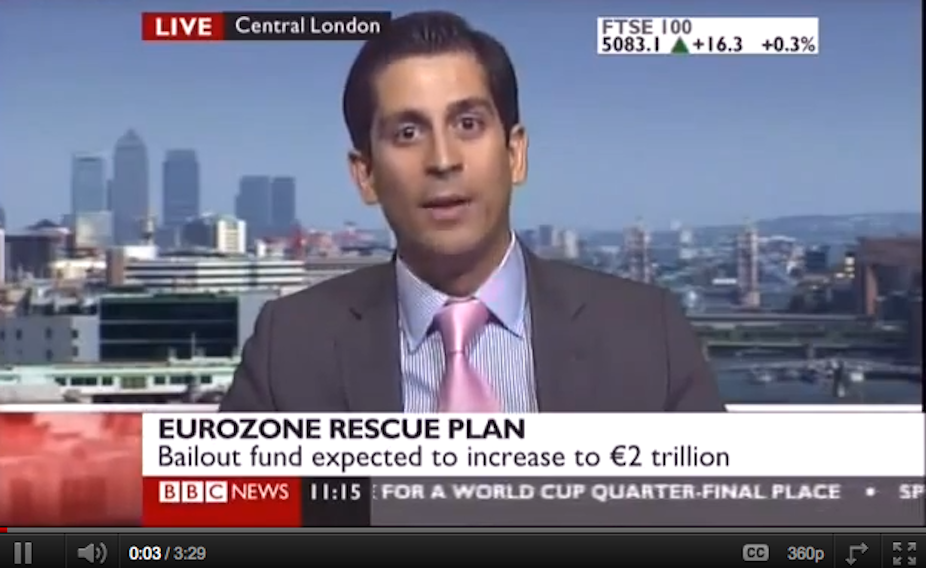Trading in financial securities has sometimes been regarded as a “black box”.
This is particularly the case in markets where there is increased uncertainty. The current world economy is a prime candidate for increased uncertainty. Ever since the global financial crisis the market has had the jitters.
But markets don’t get jitters; it’s the individuals in them. This is not helped by negative media reports of losses in confidence, and once the ball begins to roll we get waves of panic selling and markets fall until rational investors begin to consider the lower prices represent good value and buying pressures correct the falls.
When the uncertainty is high then markets can see large swings in prices as buyers and sellers move in and out.
As a result of the increased uncertainty we are likely to see stories of some individuals such as London trader Alessio Rastani dreaming of making lots of money, some losing lots of money and rogue traders like Kweku Adoboli trying to recover losses but failing and being exposed.

As bad news sells newspapers, we are likely to see increased reports of losses. Although a million dollars - or a trillion dollars - is a lot of money to most people, in the whole scheme of things these amounts are relatively small.
Providing there isn’t a complete loss of market confidence there will be a future point where prices stabilise.
No one knows when this will occur because no one can predict the future. So what do you do in such a volatile market? It depends upon your preference for risk.
In traditional finance, risk aversion is measured by the curvature of the utility function for wealth. A different view as proposed in prospect theory is that people are not consistently risk averse.
Although they are more sensitive to losses than to gains, they are also risk-seeking in their attraction to long shots and in their willingness to gamble when faced with near-certain loss.
In addition we know that investors do not take a global view of their assets. They hold separate mental accounts and are more likely to gamble from some accounts over others.
Princeton Professor Daniel Kahneman (one of the forefathers of prospect theory) takes this even further by suggesting that these theories are exclusively concerned with the moment of the decision, not with the moment of truth when consequences are experienced.
They tacitly assume that individuals correctly anticipate their reaction to possible outcomes and incorporate valid emotional predictions into their investment decisions.
But people are poor forecasters of their future emotions and future tastes. When there is increased uncertainty in the market it may make some traders take more explicit consideration of the regret they will face when the market goes against them.
Regret that is anticipated is more likely to be avoided. However, some traders will have no regrets and enjoy the adrenalin rush that the increased uncertainty brings.
Unfortunately, since we are poor forecasters of our future emotions, traders do not have a good idea of how they are going to react when they face losses.
Some of those that will suffer losses in the current market are going to face a lot of regrets.

